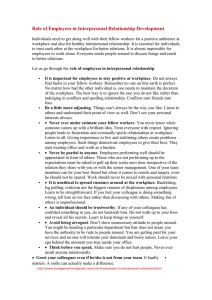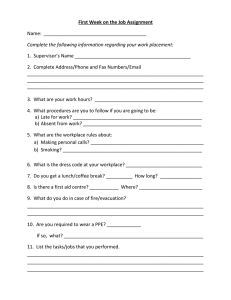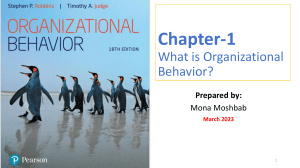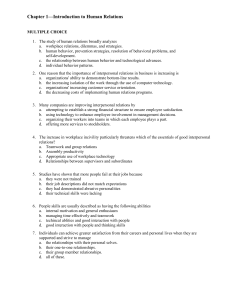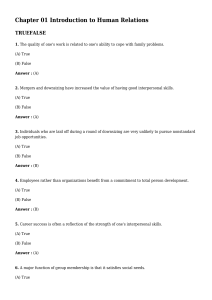演講題目:『Organizational behaviour』
advertisement
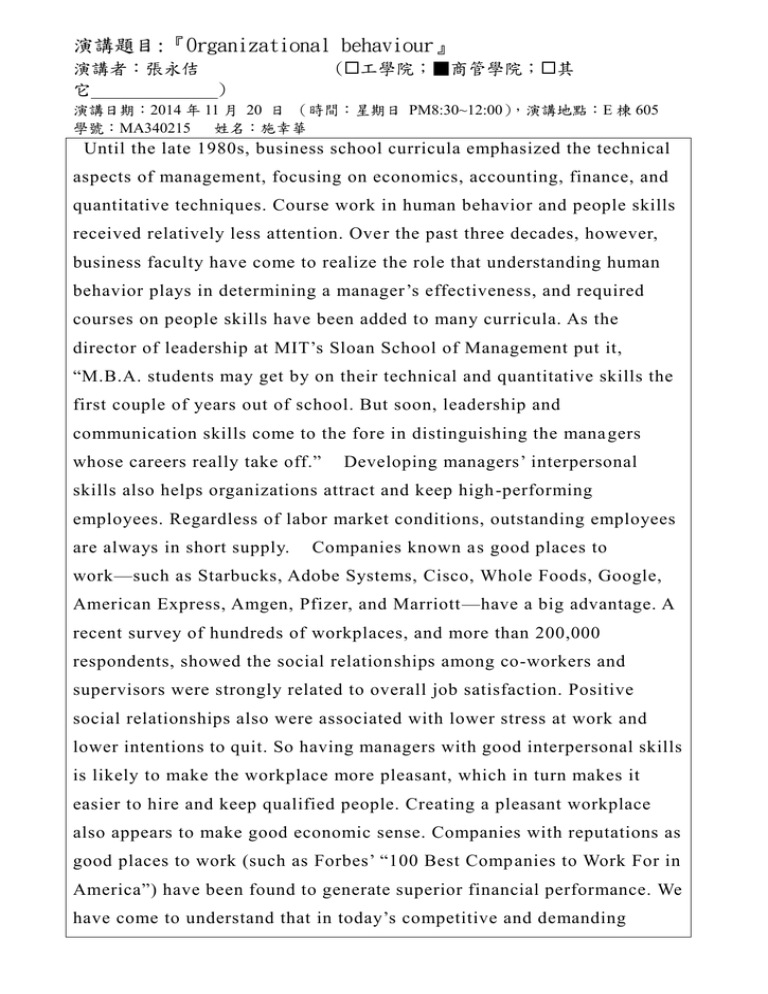
演講題目:『Organizational behaviour』 演講者:張永佶 它 ) (工學院;▓商管學院;其 演講日期:2014 年 11 月 20 日 (時間:星期日 PM8:30~12:00),演講地點:E 棟 605 學號:MA340215 姓名:施幸華 Until the late 1980s, business school curricula emphasized the technical aspects of management, focusing on economics, accounting, finance, and quantitative techniques. Course work in human behavior and people skills received relatively less attention. Over the past three decades, however, business faculty have come to realize the role that understanding human behavior plays in determining a manager’s effectiveness, and required courses on people skills have been added to many curricula. As the director of leadership at MIT’s Sloan School of Management put it, “M.B.A. students may get by on their technical and quantitative skills the first couple of years out of school. But soon, leadership and communication skills come to the fore in distinguishing the mana gers whose careers really take off.” Developing managers’ interpersonal skills also helps organizations attract and keep high -performing employees. Regardless of labor market conditions, outstanding employees are always in short supply. Companies known as good places to work—such as Starbucks, Adobe Systems, Cisco, Whole Foods, Google, American Express, Amgen, Pfizer, and Marriott—have a big advantage. A recent survey of hundreds of workplaces, and more than 200,000 respondents, showed the social relationships among co-workers and supervisors were strongly related to overall job satisfaction. Positive social relationships also were associated with lower stress at work and lower intentions to quit. So having managers with good interpersonal skills is likely to make the workplace more pleasant, which in turn makes it easier to hire and keep qualified people. Creating a pleasant workplace also appears to make good economic sense. Companies with reputations as good places to work (such as Forbes’ “100 Best Comp anies to Work For in America”) have been found to generate superior financial performance. We have come to understand that in today’s competitive and demanding workplace, managers can’t succeed on their technical skills alone. They also have to have good people skills. This book has been written to help both managers and potential managers develop those people skills.
